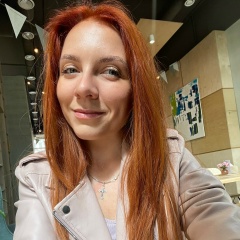Как будущий создатель романа "Мы" в студенческие годы ходил в большевиках и динамит у себя в комнате хранил!
"Петербург начала 900 х годов – Петербург Комиссаржевской, Леонида Андреева, Витте, Плеве, рысаков в синих сетках, дребезжащих конок с империалами, студентов мундирно шпажных и студентов в синих косоворотках. Я – студент политехник косовороточной категории.
В зимнее белое воскресенье на Невском – черно от медленных, чего то выжидающих толп. Дирижирует Невским – Думская каланча, с дирижера все не спускают глаз. И когда подан знак – один удар, час дня – на проспекте во все стороны черные человеческие брызги, куски марсельезы, красных знамен, казаки, дворники, городовые… Первая (для меня) демонстрация – 1903 год. И чем ближе к девятьсот пятому – кипенье все лихорадочней, сходки все шумнее.
Летом – практика на заводах, Россия, прибаутливые, веселые третьеклассные вагоны, Севастополь, Нижний, Камские заводы, Одесса, порт, босяки.
Лето 1905 года – особенно синее, пестрое, тугое, доверху набитое людьми и происшествиями. Я – практикантом на пароходе «Россия», плавающем от Одессы до Александрии. Константинополь, мечети, дервиши, базары, беломраморная набережная Смирны, бедуины Бейрута, белый Яффский прибой, черно зеленый Афон, чумный Порт Саид, желто белая Африка, Александрия – с английскими полисменами, продавцами крокодиловых чучел, знаменитый Тартуш. Особенный, отдельный от всего, изумительный Иерусалим, где я с неделю жил в семье знакомого араба.
А по возвращении в Одессу – эпопея бунта на «Потемкине». С машинистом «России» – смытый, затопленный, опьяненный толпой – бродил в порту весь день и всю ночь, среди выстрелов, пожаров, погромов.
В те годы быть большевиком – значило идти по линии наибольшего сопротивления; и я был тогда большевиком. Была осень 1905 года, забастовки, черный Невский, прорезанный прожектором с Адмиралтейства, 17-ое октября, митинги в высших учебных заведениях…
Однажды в декабре вечером в мою комнату на Ломанском переулке пришел приятель, рабочий, крылоухий Николай В. – с бумажным мешком от филипповских булок, в мешке – пироксилин. «Оставлю ка я тебе мешочек, а то за мной по пятам шпики ходят». – «Что ж, оставь». И сейчас еще вижу этот мешок: слева, на подоконнике, рядом с кулечком сахару и колбасой.
На другой день – в «штабе» Выборгского района, в тот самый момент, когда на столе были разложены планы, парабеллумы, маузеры, велодоги – полиция: в мышеловке человек тридцать. А в моей комнате слева, на подоконнике – мешок от филипповских булок, под кроватью – листки.
Когда, обысканные и избитые, мы разделены были по группам, я – вместе с другими четырьмя – оказался у окна. У фонаря под окном увидел знакомые лица, улучил момент и в фортку выбросил записочку, чтобы у этих четырех и у меня убрали из комнат все неподобающее. Это было сделано. Но о том я узнал позже, а пока – несколько месяцев в одиночке на Шпалерной мне снился мешочек от филипповских булок – налево, на подоконнике.
В одиночке – был влюблен, изучал стенографию, английский язык и писал стихи (это неизбежно). Весною девятьсот шестого года освободили и выслали на родину."
Евгений Замятин. "Автобиография".
"Петербург начала 900 х годов – Петербург Комиссаржевской, Леонида Андреева, Витте, Плеве, рысаков в синих сетках, дребезжащих конок с империалами, студентов мундирно шпажных и студентов в синих косоворотках. Я – студент политехник косовороточной категории.
В зимнее белое воскресенье на Невском – черно от медленных, чего то выжидающих толп. Дирижирует Невским – Думская каланча, с дирижера все не спускают глаз. И когда подан знак – один удар, час дня – на проспекте во все стороны черные человеческие брызги, куски марсельезы, красных знамен, казаки, дворники, городовые… Первая (для меня) демонстрация – 1903 год. И чем ближе к девятьсот пятому – кипенье все лихорадочней, сходки все шумнее.
Летом – практика на заводах, Россия, прибаутливые, веселые третьеклассные вагоны, Севастополь, Нижний, Камские заводы, Одесса, порт, босяки.
Лето 1905 года – особенно синее, пестрое, тугое, доверху набитое людьми и происшествиями. Я – практикантом на пароходе «Россия», плавающем от Одессы до Александрии. Константинополь, мечети, дервиши, базары, беломраморная набережная Смирны, бедуины Бейрута, белый Яффский прибой, черно зеленый Афон, чумный Порт Саид, желто белая Африка, Александрия – с английскими полисменами, продавцами крокодиловых чучел, знаменитый Тартуш. Особенный, отдельный от всего, изумительный Иерусалим, где я с неделю жил в семье знакомого араба.
А по возвращении в Одессу – эпопея бунта на «Потемкине». С машинистом «России» – смытый, затопленный, опьяненный толпой – бродил в порту весь день и всю ночь, среди выстрелов, пожаров, погромов.
В те годы быть большевиком – значило идти по линии наибольшего сопротивления; и я был тогда большевиком. Была осень 1905 года, забастовки, черный Невский, прорезанный прожектором с Адмиралтейства, 17-ое октября, митинги в высших учебных заведениях…
Однажды в декабре вечером в мою комнату на Ломанском переулке пришел приятель, рабочий, крылоухий Николай В. – с бумажным мешком от филипповских булок, в мешке – пироксилин. «Оставлю ка я тебе мешочек, а то за мной по пятам шпики ходят». – «Что ж, оставь». И сейчас еще вижу этот мешок: слева, на подоконнике, рядом с кулечком сахару и колбасой.
На другой день – в «штабе» Выборгского района, в тот самый момент, когда на столе были разложены планы, парабеллумы, маузеры, велодоги – полиция: в мышеловке человек тридцать. А в моей комнате слева, на подоконнике – мешок от филипповских булок, под кроватью – листки.
Когда, обысканные и избитые, мы разделены были по группам, я – вместе с другими четырьмя – оказался у окна. У фонаря под окном увидел знакомые лица, улучил момент и в фортку выбросил записочку, чтобы у этих четырех и у меня убрали из комнат все неподобающее. Это было сделано. Но о том я узнал позже, а пока – несколько месяцев в одиночке на Шпалерной мне снился мешочек от филипповских булок – налево, на подоконнике.
В одиночке – был влюблен, изучал стенографию, английский язык и писал стихи (это неизбежно). Весною девятьсот шестого года освободили и выслали на родину."
Евгений Замятин. "Автобиография".
As a future creator of the novel "We" in his student years went to the Bolsheviks and kept dynamite in his room!
"St. Petersburg in the early 900s - St. Petersburg Komissarzhevskaya, Leonid Andreev, Witte, Pleve, trotters in blue nets, rattling horse skates with imperials, students in uniform skins and students in blue shirts. I am a student of a polytechnic of Kosovorotkoy category.
On winter white Sunday on Nevsky, it’s black from slow, waiting crowds. Conducted by Nevsky - Duma Kalancha, everyone does not take their eyes off the conductor. And when the sign was given - one hit, one o'clock - on the avenue in all directions black human spray, pieces of Marseillaise, red banners, Cossacks, street cleaners, city ... The first (for me) demonstration - 1903. And the closer to nine hundred and fifth - the boil is more feverish, gatherings are noisier.
In the summer - practice at factories, Russia, friendly, funny third-class cars, Sevastopol, Nizhny, Kama plants, Odessa, port, tramp.
The summer of 1905 is especially blue, colorful, tight, crammed full of people and incidents. I am a trainee on the ship "Russia", sailing from Odessa to Alexandria. Constantinople, mosques, dervishes, bazaars, the white marble embankment of Smyrna, the Bedouins of Beirut, the white Jaffa surf, black-green Athos, the plague Port Said, yellow-white Africa, Alexandria - with English cops, sellers of crocodile stuffed animals, the famous Tartush. A special, separate from everything, amazing Jerusalem, where I lived for a week in the family of a familiar Arab.
And upon returning to Odessa - the epic of rebellion on the Potemkin. With the driver of "Russia" - washed away, flooded, intoxicated by the crowd - wandered in the port all day and all night, amid shots, fires, pogroms.
In those years, to be a Bolshevik was to go along the line of greatest resistance; and I was then a Bolshevik. It was the fall of 1905, strikes, black Nevsky, cut through by a searchlight from the Admiralty, October 17, rallies in higher educational institutions ...
One day in December evening, a friend, a worker, a wing-eared Nikolai V., came to my room on Loman Lane with a paper bag from Filipov’s rolls, and pyroxylin in the bag. “Let me leave you a bag, otherwise the lard will follow me.” “Well, leave it.” And now I still see this bag: on the left, on the windowsill, next to a bag of sugar and sausage.
The next day - in the “headquarters” of the Vyborgsky district, at the very moment when plans, parabellums, Mausers, bicycle dogs — the police were laid out on the table — there were thirty people in the mousetrap. And in my room on the left, on the windowsill - a bag from Filipov’s rolls, under the bed - leaflets.
When, searched and beaten, we were divided into groups, I - along with four others - appeared at the window. At the lantern under the window I saw familiar faces, seized the moment and threw a note into the fort so that these four and I had everything inappropriate removed from the rooms. That was done. But I found out about this later, and for now - for several months alone on Shpalernaya, I dreamed of a bag from Filipov’s rolls - to the left, on the windowsill.
Alone - he was in love, studied shorthand, English and wrote poetry (this is inevitable). In the spring of the nine hundred and sixth year, they were released and sent to their homeland. "
Evgeny Zamyatin. "Autobiography".
"St. Petersburg in the early 900s - St. Petersburg Komissarzhevskaya, Leonid Andreev, Witte, Pleve, trotters in blue nets, rattling horse skates with imperials, students in uniform skins and students in blue shirts. I am a student of a polytechnic of Kosovorotkoy category.
On winter white Sunday on Nevsky, it’s black from slow, waiting crowds. Conducted by Nevsky - Duma Kalancha, everyone does not take their eyes off the conductor. And when the sign was given - one hit, one o'clock - on the avenue in all directions black human spray, pieces of Marseillaise, red banners, Cossacks, street cleaners, city ... The first (for me) demonstration - 1903. And the closer to nine hundred and fifth - the boil is more feverish, gatherings are noisier.
In the summer - practice at factories, Russia, friendly, funny third-class cars, Sevastopol, Nizhny, Kama plants, Odessa, port, tramp.
The summer of 1905 is especially blue, colorful, tight, crammed full of people and incidents. I am a trainee on the ship "Russia", sailing from Odessa to Alexandria. Constantinople, mosques, dervishes, bazaars, the white marble embankment of Smyrna, the Bedouins of Beirut, the white Jaffa surf, black-green Athos, the plague Port Said, yellow-white Africa, Alexandria - with English cops, sellers of crocodile stuffed animals, the famous Tartush. A special, separate from everything, amazing Jerusalem, where I lived for a week in the family of a familiar Arab.
And upon returning to Odessa - the epic of rebellion on the Potemkin. With the driver of "Russia" - washed away, flooded, intoxicated by the crowd - wandered in the port all day and all night, amid shots, fires, pogroms.
In those years, to be a Bolshevik was to go along the line of greatest resistance; and I was then a Bolshevik. It was the fall of 1905, strikes, black Nevsky, cut through by a searchlight from the Admiralty, October 17, rallies in higher educational institutions ...
One day in December evening, a friend, a worker, a wing-eared Nikolai V., came to my room on Loman Lane with a paper bag from Filipov’s rolls, and pyroxylin in the bag. “Let me leave you a bag, otherwise the lard will follow me.” “Well, leave it.” And now I still see this bag: on the left, on the windowsill, next to a bag of sugar and sausage.
The next day - in the “headquarters” of the Vyborgsky district, at the very moment when plans, parabellums, Mausers, bicycle dogs — the police were laid out on the table — there were thirty people in the mousetrap. And in my room on the left, on the windowsill - a bag from Filipov’s rolls, under the bed - leaflets.
When, searched and beaten, we were divided into groups, I - along with four others - appeared at the window. At the lantern under the window I saw familiar faces, seized the moment and threw a note into the fort so that these four and I had everything inappropriate removed from the rooms. That was done. But I found out about this later, and for now - for several months alone on Shpalernaya, I dreamed of a bag from Filipov’s rolls - to the left, on the windowsill.
Alone - he was in love, studied shorthand, English and wrote poetry (this is inevitable). In the spring of the nine hundred and sixth year, they were released and sent to their homeland. "
Evgeny Zamyatin. "Autobiography".

У записи 3 лайков,
0 репостов.
0 репостов.
Эту запись оставил(а) на своей стене Константин Макаров
























